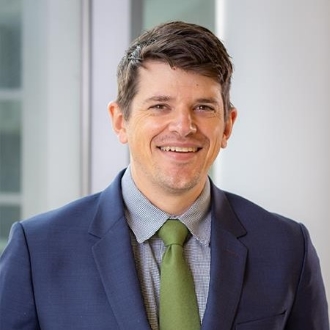Our Team
Leadership

Corey Bills MD, MPH
- Center for Global Health
- Emergency Medicine (SOM)
Email Address:[email protected]
Since arriving as faculty in 2019 Corey has partnered with CGH on educational activities to standardize resident and fellow education. In the past year, he has also worked with CGH faculty on a grant proposal to support the health needs of refugee communities in Uganda and a more recent CDC proposal to implement and evaluate approaches to a One Health laboratory diagnostic network optimization and specimen transport system in Liberia. In both instances his work supports the aims of Dr. May Chu and the development of The Integrated Global Health Resilience (TIGHeR) team at the University of Colorado, Center for Global Health.
Prior Experience
For the last 20 years, Corey has worked in Liberia in collaboration with the Ministry of Health (MOH) and multiple non-governmental organizations to support the development of emergency and acute care in the country. The most recent work seeks to understand community approaches and barriers to emergency care leading to the pilot of the World Health Organizations Community First Aid Response (CFAR) program in collaboration with the MOH Division of EMS.
In collaboration with multiple Department of EM (DEM) faculty, they are studying the clinical outcomes among civilians with traumatic wounds in Ukraine. The work aims to determine the association between injury characteristics, medical and surgical care, and associated wound complications, including non-healing, infection, and mortality, as well as to evaluate the drug resistance patterns of trauma-related wound infections during the ongoing conflict in Ukraine.
Lastly, Corey and others in the DEM continue to collaborate and partner with the WHO Office of Integrated Emergency, Critical, and Operative care to support their mission of improving acute care globally.
Affiliations
- Senior Investigator, Center for Global Health
Staff

Corey Bills MD, MPH
- Center for Global Health
- Emergency Medicine (SOM)
Email Address:[email protected]
Since arriving as faculty in 2019 Corey has partnered with CGH on educational activities to standardize resident and fellow education. In the past year, he has also worked with CGH faculty on a grant proposal to support the health needs of refugee communities in Uganda and a more recent CDC proposal to implement and evaluate approaches to a One Health laboratory diagnostic network optimization and specimen transport system in Liberia. In both instances his work supports the aims of Dr. May Chu and the development of The Integrated Global Health Resilience (TIGHeR) team at the University of Colorado, Center for Global Health.
Prior Experience
For the last 20 years, Corey has worked in Liberia in collaboration with the Ministry of Health (MOH) and multiple non-governmental organizations to support the development of emergency and acute care in the country. The most recent work seeks to understand community approaches and barriers to emergency care leading to the pilot of the World Health Organizations Community First Aid Response (CFAR) program in collaboration with the MOH Division of EMS.
In collaboration with multiple Department of EM (DEM) faculty, they are studying the clinical outcomes among civilians with traumatic wounds in Ukraine. The work aims to determine the association between injury characteristics, medical and surgical care, and associated wound complications, including non-healing, infection, and mortality, as well as to evaluate the drug resistance patterns of trauma-related wound infections during the ongoing conflict in Ukraine.
Lastly, Corey and others in the DEM continue to collaborate and partner with the WHO Office of Integrated Emergency, Critical, and Operative care to support their mission of improving acute care globally.
Affiliations
- Senior Investigator, Center for Global Health
Senior Investigators & Faculty

Corey Bills MD, MPH
- Center for Global Health
- Emergency Medicine (SOM)
Email Address:[email protected]
Since arriving as faculty in 2019 Corey has partnered with CGH on educational activities to standardize resident and fellow education. In the past year, he has also worked with CGH faculty on a grant proposal to support the health needs of refugee communities in Uganda and a more recent CDC proposal to implement and evaluate approaches to a One Health laboratory diagnostic network optimization and specimen transport system in Liberia. In both instances his work supports the aims of Dr. May Chu and the development of The Integrated Global Health Resilience (TIGHeR) team at the University of Colorado, Center for Global Health.
Prior Experience
For the last 20 years, Corey has worked in Liberia in collaboration with the Ministry of Health (MOH) and multiple non-governmental organizations to support the development of emergency and acute care in the country. The most recent work seeks to understand community approaches and barriers to emergency care leading to the pilot of the World Health Organizations Community First Aid Response (CFAR) program in collaboration with the MOH Division of EMS.
In collaboration with multiple Department of EM (DEM) faculty, they are studying the clinical outcomes among civilians with traumatic wounds in Ukraine. The work aims to determine the association between injury characteristics, medical and surgical care, and associated wound complications, including non-healing, infection, and mortality, as well as to evaluate the drug resistance patterns of trauma-related wound infections during the ongoing conflict in Ukraine.
Lastly, Corey and others in the DEM continue to collaborate and partner with the WHO Office of Integrated Emergency, Critical, and Operative care to support their mission of improving acute care globally.
Affiliations
- Senior Investigator, Center for Global Health


